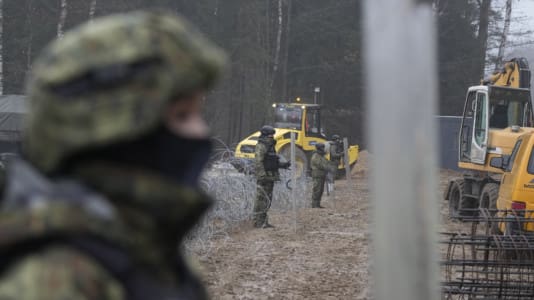Approximately 10 years ago, Germany’s solar power industry was destroyed by Chinese solar panel companies, most of which relied on stealing German technology and selling it back to Europeans for far cheaper than German companies could manage, leading to a total collapse in Germany’s promising and innovative solar power market.
Now, the same fate is awaiting Germany’s wind turbine industry, which is facing enormous pressure not only from China, but also due to high interest rates, stretched supply chains, and quality control issues. The biggest German wind turbine producers all share the same story: They are failing to make a profit and struggling to continue their operations.
The news bodes ill for Europe’s so-called green revolution, which is being sold to the public as not only a solution to the climate crisis, but also a future economic bonanza for European countries. In fact, German Chancellor Olaf Scholz promised that the energy transition would deliver an “economic miracle” for his country.
[pp id=88850]
In theory, Germany’s wind turbine industry should be in the black, with demand for wind turbines only growing and a European political class dedicated to the idea of renewable energy coupled with energy independence, according to German newspaper Welt.
Nevertheless, the heads of German companies leading the country’s wind power revolution gathered in the city of Husum for the Husum Wind trade fair to lament the growing crisis their companies are facing.
“In Europe, Chinese manufacturers have already installed or planned 2.8 gigawatts of wind power output,” said Dennis Rendschmidt, head of the Power Systems division in the Association of German Mechanical and Plant Engineering (VDMA), told journalists. “Politics and society have to ask themselves whether they want to do something about it.”
[pp id=80812]
In addition, the head of Siemens Germany, Jochen Eickholt, spoke for all companies present by saying: “We are all in the red together.” Top managers in an industry panel discussion also expressed similar sentiments.
Both Chinese and Indian competitors have announced their entry into European markets, and if history is any guide, they could send European companies packing. The fact that China has a long history of stealing trade secrets, including wind turbine technology from the United States, has not led to any substantial protectionist efforts from European nations.
One turbine manufacturer, Sany, from Changsha, China, is already handing out German-language advertising literature for its 919 wind turbines.
“Of course, we are also targeting the German market,” said Gregoir de Fouchier, sales manager at Sany Europe GmbH. “We are also thinking about setting up production in Europe.”
German politicians also once promised that the solar industry would deliver an economic boon to German companies and consumers. Today, nine out of ten solar panels installed on German homes are made in China, with many of those companies benefitting from incredibly lucrative subsidies from China’s government, which left German companies unable to compete.
Germany’s wind turbine industry could soon be headed the same way.
The same story has played out for many German and Western companies, which saw their research and development in a range of technologies either copied or outright stolen by Chinese competitors. The Chinese also have a number of other advantages besides a willingness to steal technology or subsidize industry. They have also proven adept at exploiting their economies of scale with their far larger home market, access to cheap Russian energy, and lower-cost production model.
China’s wind turbines are simply cheaper, and according to Siemens boss Eickholt, “More than 50 percent of all wind turbines worldwide are currently installed in China.” He said that once the Chinese market is saturated, those same Chinese companies will look elsewhere, which includes a Europe that is seemingly powerless to stop these cheaper exports from arriving sooner rather than later.





